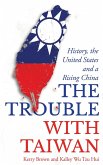British attitudes towards Arab unity have frequently been a source of controversy in the Middle East. From the Treaty of Versailles to the end of World War II, and the withdrawal of Mandates from the region, British involvement in Arab affairs has been well-documented from the British perspective. But here, Younan Labib Rizk provides a coherent Arab perspective. His analysis reveals not only how British government policy developed in this period but also the different influences on policy-making and implementation - from the changing situation on the ground to the state of Anglo-French relations and the concerns of the Cairo and India offices. He shows how all these factors coincided to produce a policy, repeated across several British administrations, which was consistently hostile towards the notion of Arab unity. While this conforms to traditional Arab views of British policy in the Levant and the Arabian Peninsula, the importance of Rizk's work lies in his extensive and meticulous research into British archives, through which he documents British attitudes and motivations. As he quotes the internal correspondence between departments and individual officials in the Foreign Office and its Eastern Department, the Colonial Office and several British Cabinets, Rizk shows that divisions within the Arab world - of which there were plenty - were initially exacerbated by British officials, and eventually acquired their own dynamic. This book enhances our understanding of how the international politics of the region evolved during a critical phase in the modern history of the Middle East.
Bitte wählen Sie Ihr Anliegen aus.
Rechnungen
Retourenschein anfordern
Bestellstatus
Storno









